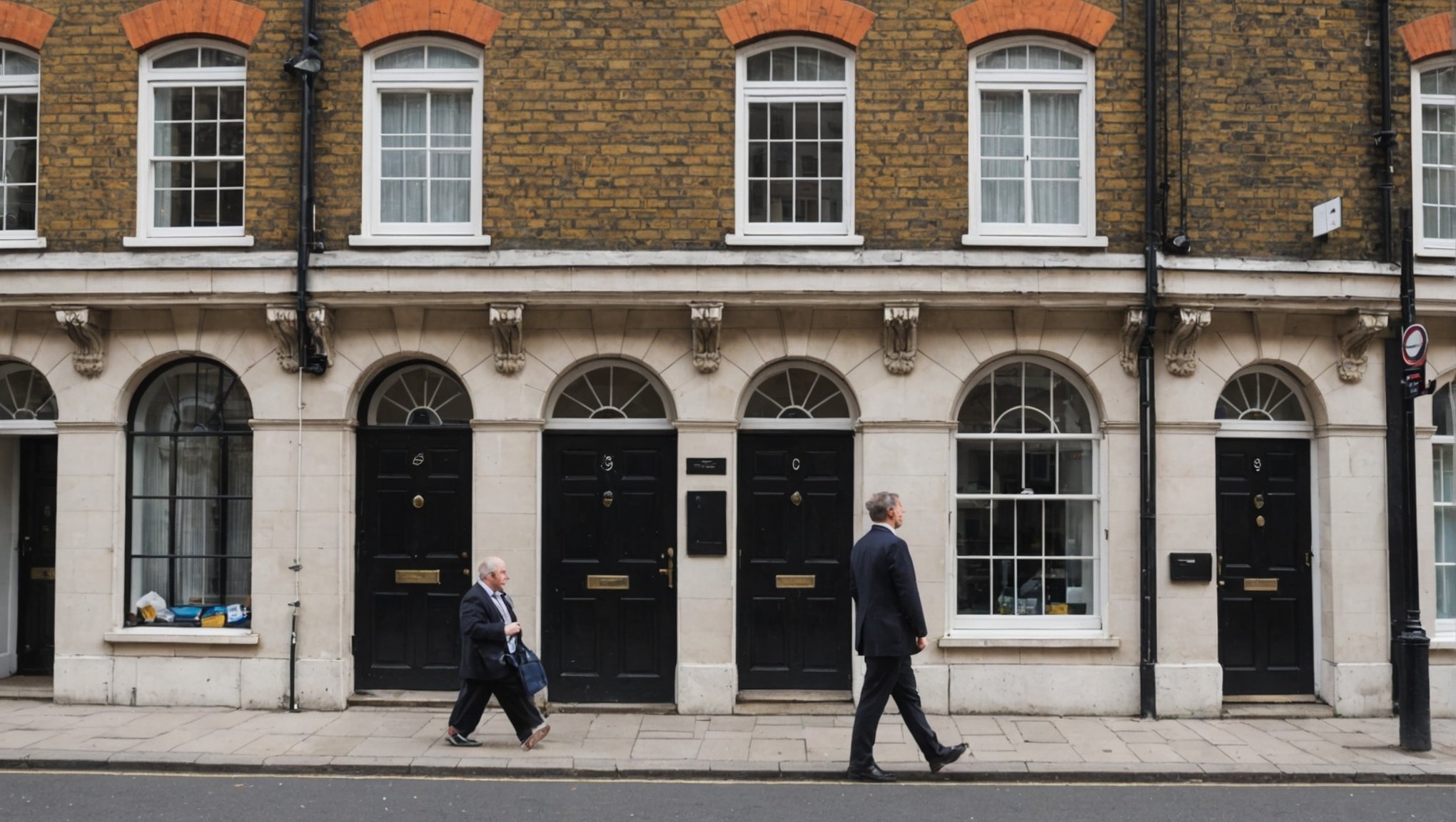The thrill of a property auction can be a draw for many, but it’s also a complex process that requires careful preparation. Whether you’re a first-time buyer looking to get your foot on the property ladder, or a savvy investor seeking your next project, understanding how auctions work is key to success. In this comprehensive guide, we’ll walk you through each step of the process, from initial research to making your bid. Here’s what you need to know before you raise your paddle in London’s auction room.
Understanding Property Auctions
Property auctions can seem daunting, especially if you’re new to the process. However, they can also be a way to secure a property at a competitive price. By setting your budget beforehand and sticking to it, an auction can help you avoid the common real estate pitfall of overbidding.
En parallèle : How to navigate the UK’s Capital Gains Tax when selling an inherited property?
To get the most out of an auction, it’s crucial to understand how they work. At a property auction, the property goes to the highest bidder. If your bid is successful, you’re legally bound to complete the purchase.
Professionalism is crucial in the world of property auctions. Knowing how to bid, when to step back, and how to navigate the legal requirements will ensure a smooth transaction and protect your interests.
A lire également : What are the benefits of a short-term rental property investment in Brighton?
Researching Properties for Auction
Before you even step foot in an auction house, it’s vital to do your homework. Firstly, decide what type of property you’re interested in. Are you looking for a residential home, an investment property, or a commercial real estate?
London property auctions are typically run by estate agencies and can feature a vast range of properties from across the city and surrounding areas. Most auction houses publish catalogues of the properties due to be auctioned around a month in advance.
Take the time to thoroughly research each property that catches your eye. Visit the properties you are interested in, check out the neighbourhood, and get a house inspection if possible. Research the local property market to have a ballpark figure for the property’s value.
Remember, information is power when it comes to auctions. The more you know about the property and the market, the better positioned you’ll be to bid successfully.
Legal Matters and The Role of a Solicitor
Once you’ve chosen a property, it’s time to get down to the nitty-gritty legal details. It is here that a solicitor comes in handy.
The legal pack provided for each auction property contains crucial information such as title deeds, leasehold information, and any special conditions of sale, among others. It’s crucial to have these documents reviewed by a solicitor before bidding.
It’s important to be aware that upon winning a bid, the sale is legally binding. Failure to complete the purchase could result in substantial financial penalties. A solicitor will guide you not just through the legal paperwork but also through the legal implications of buying at auction.
Arranging Finance and Setting a Budget
Buying a property involves a significant financial commitment. Therefore, it’s essential to have your finances in order before you attend the auction.
If you’re not a cash buyer, you’ll need to arrange a mortgage in principle before you bid. It’s worth noting that, unlike traditional property sales, you’ll typically need to provide 10% of the sale price immediately after the auction. The remaining 90% is usually due within 28 days.
Setting a budget is a critical step in the auction process. Stay disciplined and do not allow the excitement of the auction to lure you into bidding more than you can afford.
The Auction Day: Bidding and Buying
On the day of the auction, arrive early to get a feel for the room and pick up any last-minute changes to the auction catalogue. Ensure that you bring the required ID and method of payment for the deposit.
Bidding at an auction can be nerve-wracking, but try to stay calm and focused. Stick to your budget and resist the urge to get carried away by the competitive atmosphere.
Remember, buying a property at auction is a legal commitment. Once the hammer falls, you’ve agreed to buy the property for the price you bid.
While property auctions in London can be complex, they’re also a thrilling way to buy and sell properties. By understanding how auctions work and preparing carefully, you’ll be well-positioned to navigate your next property auction with confidence.
Understanding the Auction Process and Terminology
Getting to grips with the process of buying at a property auction in London is an important part of your preparation. Auctions have their own unique language and rules, so it’s crucial to familiarize yourself with these before stepping into an auction house.
At the auction, the guide price is the starting point for the bidding – it’s an indication of the seller’s minimum price. However, this is not set in stone. The guide price can change prior to the auction, and properties often sell above or below this figure.
The reserve price is the confidential minimum price agreed upon between the auctioneer and seller. The property will not be sold if bidding doesn’t reach this price. It’s important to note that the reserve price is typically higher than the guide price.
The legal pack is a bundle of documents prepared by the seller’s solicitor. It includes details about the property, conditions of sale, and title deeds. Make sure to review this before the auction, preferably with your own solicitor.
Lastly, remember that buying a property at an auction is a legally binding agreement. Once the hammer falls, the highest bidder is contractually obligated to complete the purchase.
The Aftermath of the Auction Day
Winning a bid at a property auction can be exhilarating, but it’s just the beginning of your buying journey. As the winning bidder, you are expected to pay the deposit (usually 10% of the final bid) and sign the contract immediately. The remaining balance is typically due within 28 days.
But what happens if the property didn’t meet the reserve price? In such cases, the auctioneer may approach the highest bidder after the auction to see whether a deal can be struck at the reserve price. If an agreement is reached, the sale proceeds as if it were sold in the auction room.
Keep in mind that once you’ve won the bid, you’re legally committed to buying the property, warts and all. This means that if you discover issues with the property after the auction, you can’t back out of the sale without facing legal consequences.
Conclusion
Buying a property at a London auction can be an exciting and rewarding experience. However, as with any significant real estate investment, it should not be taken lightly. Researching and understanding the intricacies of the auction process, preparing your finances, and keeping a cool head on auction day are key aspects to ensure a successful purchase.
It’s worth noting that while buying at auction can sometimes offer a quicker path to ownership and the potential for a below-market-value purchase, it also has its risks. Always remember that once the hammer falls, you are under a legal obligation to complete the purchase.
Considering the stakes, it’s always a good idea to seek professional advice from solicitors, real estate agents, and experienced buyers before diving into a property auction. With careful planning and due diligence, buying a property at auction can be a solid step in your real estate journey.






